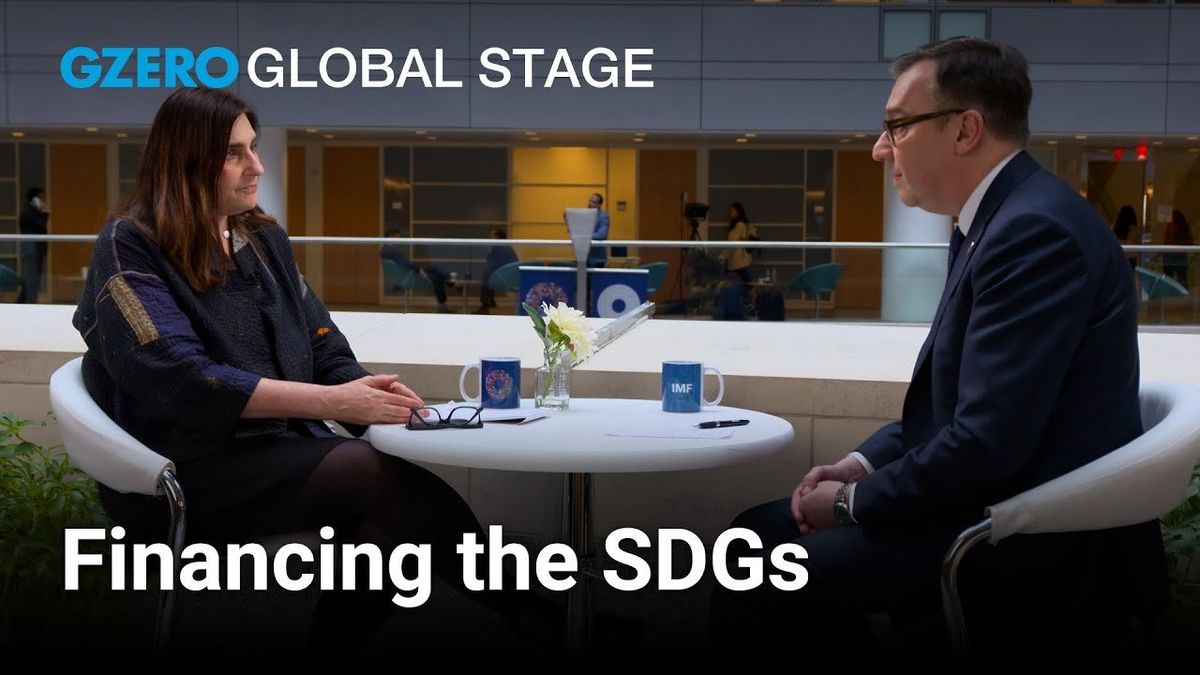Why the UN's 17 Sustainable Development Goals are not on track to be financed soon
The world faces a sustainable development crisis, and while most countries have strategies in place, they don’t have the cash to back them up. How far off track are we with the financing needed to support the UN’s 17 Sustainable Development Goals, ranging from quality education and health care to climate action and clean water?
Shari Spiegel, who runs the UN’s Financing for Sustainable Development Office, sat down with GZERO’s Tony Maciulis at a Global Stage event for the IMF-World Bank Spring Meetings this week. She explains that the SDGs were off track even before the pandemic and that now, owing to global crises, many poorer countries have slipped backwards.
“We actually started backtracking on many of these goals as countries were under enormous stress, and particularly the poorest countries,” she said, noting that the global output of many of the poorest nations has fallen by 30% — and some, such as the Small Island Developing States, by 40%. This has led to an enormous finance divide — raising SDG financing and investment gaps from $2 trillion a few years ago to around $4 trillion today.
So how can the UN restrengthen multilateralism and, in turn, help narrow this gap? Watch here.


















